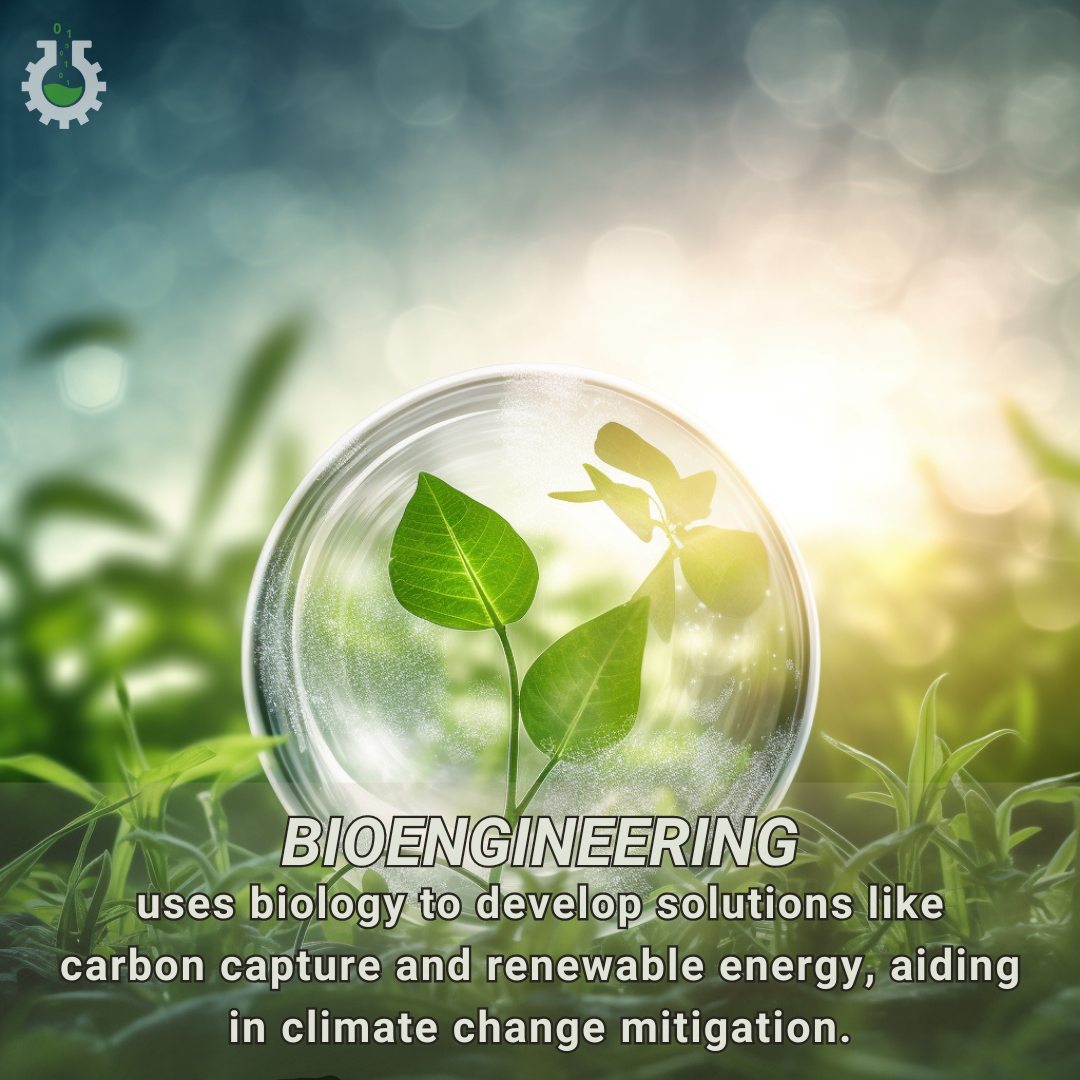July 9, 2024
Climate Change Poster Collection of the Day – Bioengineering
Book a Demo
Today’s Climate Change Poster Collection highlights Bioengineering, the application of principles of biology and the tools of engineering to create usable, tangible, economically viable products, has emerged as a promising field in the fight against climate change. This interdisciplinary science offers innovative solutions that could mitigate the adverse effects of global warming and help build a sustainable future. But what exactly is the connection between bioengineering and climate change, and how can this field be harnessed to address one of the most pressing issues of our time?
At its core, bioengineering leverages biological processes and organisms to develop technologies that can solve environmental problems. One of the most significant contributions of bioengineering to climate change mitigation is through the development of biofuels. Unlike fossil fuels, which release large amounts of carbon dioxide when burned, biofuels are derived from biomass and are considered carbon-neutral. This means that the carbon dioxide released during combustion is roughly equal to the amount absorbed by the plants used to produce the biomass, creating a balanced carbon cycle. Advanced bioengineering techniques are being used to enhance the efficiency of biofuel production, making it a more viable alternative to traditional fossil fuels.
Another area where bioengineering intersects with climate change is in carbon capture and sequestration. Scientists are developing genetically engineered microorganisms that can absorb carbon dioxide from the atmosphere and convert it into useful byproducts. For example, certain strains of algae can be engineered to capture carbon dioxide and produce bio-oil, which can then be refined into biofuel. This not only helps reduce the amount of greenhouse gases in the atmosphere but also provides a renewable source of energy.
Bioengineering also plays a crucial role in agriculture, which is both a significant contributor to and a victim of climate change. Genetically modified crops that are more resilient to extreme weather conditions, pests, and diseases can help ensure food security in the face of a changing climate. These crops can be engineered to require less water and fertilizers, reducing the environmental impact of agriculture. Additionally, plants can be genetically modified to enhance their natural ability to sequester carbon in the soil, thus acting as carbon sinks.
Moreover, bioengineering offers innovative solutions for waste management, another critical aspect of climate change mitigation. Microorganisms can be engineered to break down plastic waste, reducing the amount of plastic pollution that ends up in the oceans and landfills. These microorganisms can also be used in bioremediation processes to clean up oil spills and other environmental contaminants, preventing further damage to ecosystems.
However, the application of bioengineering in combating climate change is not without its challenges and ethical considerations. The release of genetically modified organisms into the environment must be carefully regulated to prevent unintended consequences. There is also the issue of equity, as the benefits of bioengineering solutions should be accessible to all, particularly those in developing countries who are most vulnerable to the impacts of climate change.
Bioengineering holds immense potential in addressing the multifaceted challenges posed by climate change. From developing sustainable biofuels and enhancing carbon capture to creating resilient crops and innovative waste management solutions, the applications of bioengineering are vast and varied. As research and technology continue to advance, it is crucial to navigate the ethical and regulatory landscapes carefully to ensure that these innovations are safe, effective, and equitable. By harnessing the power of bioengineering, we can take significant strides toward mitigating climate change and building a sustainable future for generations to come.
Discover an inspiring collection of climate change poster.



